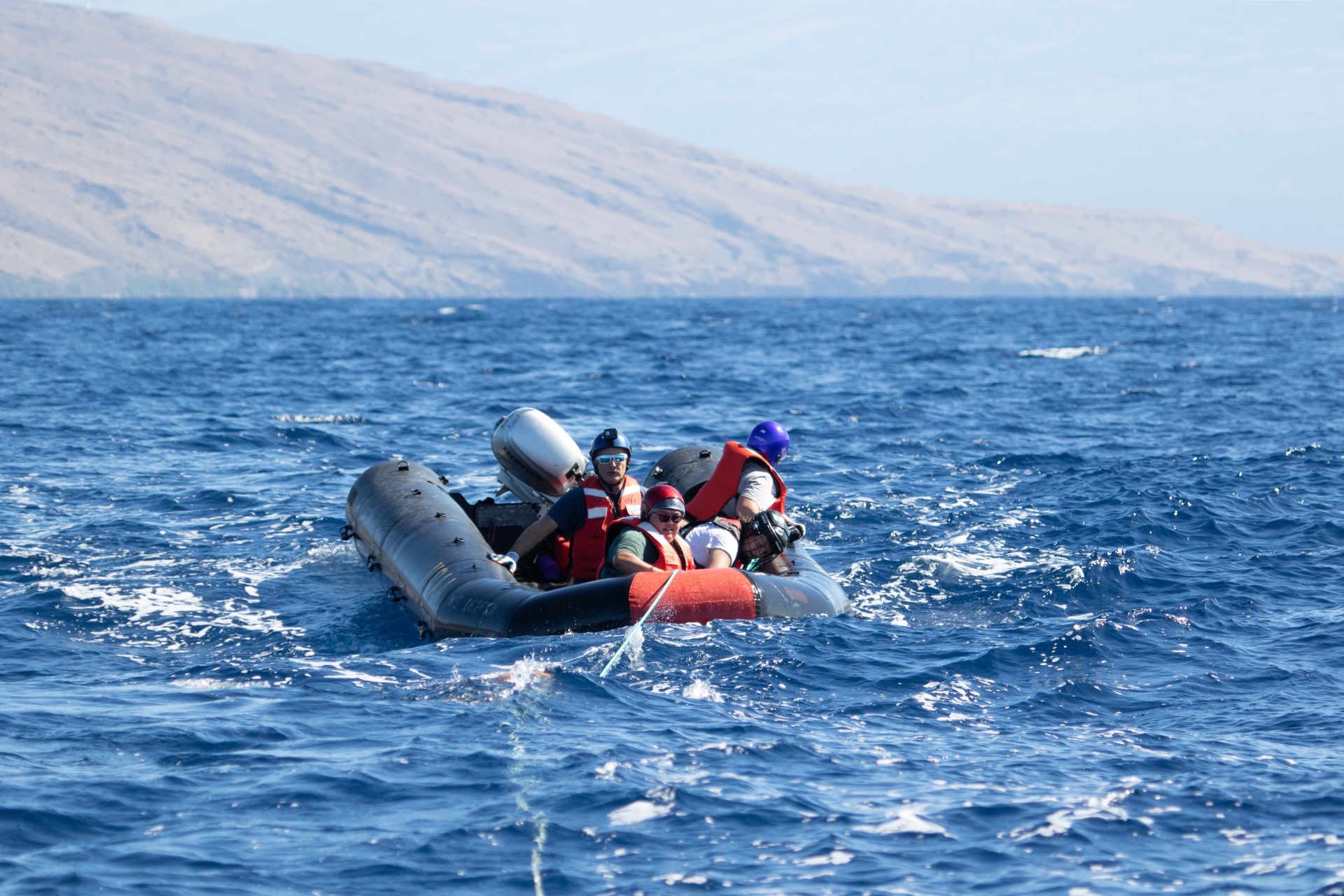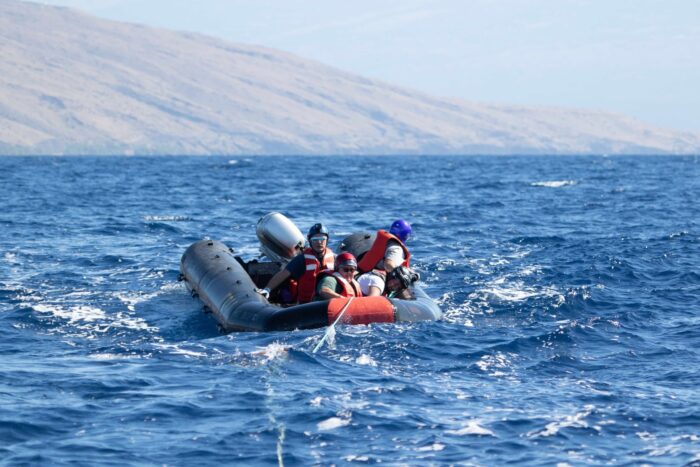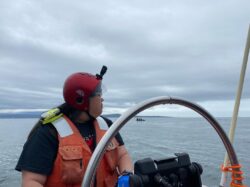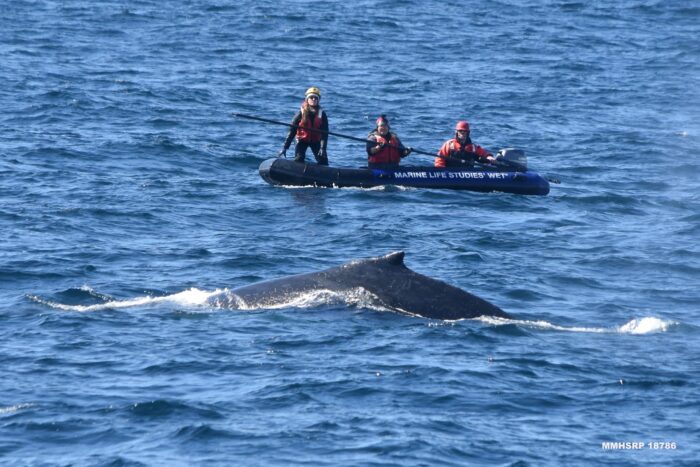
Coastal Careers: Whale Entanglement Rescue Responder

Photo credit: Stephanie Marcos
Written by: Stephanie Marcos, Operations Manager of Marine Life Studies, Whale Entanglement Team (WET)®, Level 3 Whale Rescue Responder: Marine Mammal Health and Stranding Response Program
How did you get started in entanglement response?
As a freshman in college at CSU Monterey Bay, I knew that I needed to get my foot in the door within the marine science community because it was a very competitive environment. I started volunteering with Marine Life Studies and began to learn, hands-on, what it was like to work in the marine science field. Marine Life Studies is unique in that it is an all-inclusive organization that welcomes all people to volunteer, no matter what your background, educational level, experience, or lack of. By learning whale behavior, species identification, and other skills needed to be a marine researcher through Marine Life Studies’ Research Scientist Program, it sparked something in me that wanted to dig deeper and help make a larger impact. As I continued being on the water, we encountered entangled whales and responded to reports, so I was able to learn about whale disentanglement and become a member of the Whale Entanglement Team (WET)®.
What’s it like to be the youngest woman Level 3 responder in California in the network?

Photo credit: Stephanie Marcos
Large whale entanglement response is difficult and a demanding responsibility. It has also been a predominately male field, so I am proud that I could strengthen and diversify the team. It’s not always easy. As a young woman in this line of work, I feel that I have to be extra vocal about what my intentions and goals are. You must voice what you want and need if you are going to move up in levels through the disentanglement network. There are individuals that push you to give it your all and try to give you those opportunities to gain experience and advance in levels, but if you don’t take charge of what you want, you’re going to be at a standstill. If I were to give some advice to women who are beginning this process, I would tell them to make sure they are always ready for any opportunity given to them, voice your intentions and goals to those who make important decisions during responses, and to never give up, even if you feel like there are biases or inequality. I am happy to share my story and insight of the process I went through in becoming the youngest woman Level 3 responder in California. I believe that it’s super important to share these experiences with others to help them excel in this environment. Let’s put politics and egos aside, and save more whales, damn it! That’s what this is about! Just know that I’ll be there to cheer you on and do my best to help you through the process.
How does whale entanglement response help the survival of species?
Although whale rescue is not the real solution to the current entanglement problem, it serves as a band-aid on the present issues that we encounter on a circumstance-to-circumstance basis while trying to figure out the big picture for entanglement prevention. The resight rate of previously entangled individuals is not high, but it does happen. It’s gratifying to see whales that we have previously disentangled thriving in their environment, especially if we know that the animal is a female. That way, we can say that it was very important for the survival of the species to help a reproductive female have another chance at life to have more babies! By learning the nature and origin of the entanglement, we can figure out how we can prevent it from happening. I have taken part in a few whale entanglement prevention programs, so I’m hopeful we can get enough people interested and onboard to help mitigate this problem. It’ll definitely need everyone’s collaboration, but I think we can get there.
How important is it for disentanglement trainings like the Foundation organizes for responders?
Disentanglement trainings are crucial for network members to dust off the cobwebs and to expand our team to have more support when we are out on real-life entanglements. We have our own in-house trainings amongst our team members, multi-agency trainings, and even national trainings throughout the year. The Foundation has done an incredible job for the disentanglement network in the past few years. They have provided needed funding for networks to travel to different parts of California so there is maximum attendance with multiple level 3 and level 4 responders to help facilitate the overall training for current members and new members of the network.

Photo credit: Stephanie Marcos
